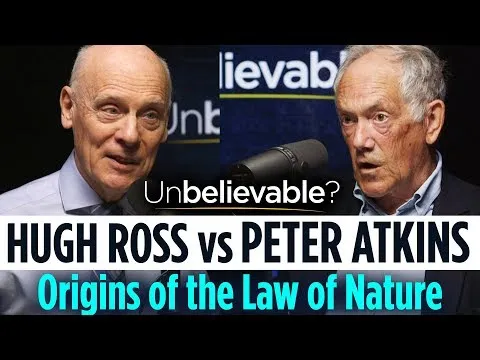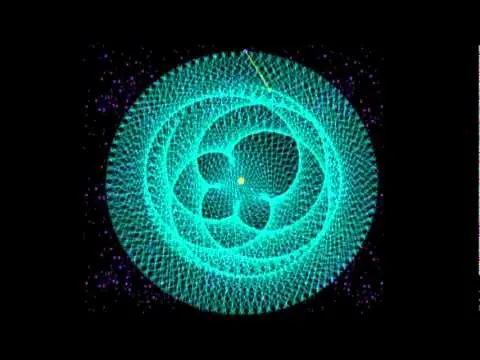
My counter-thesis:
The idea of God as the creator of life is in fact an intellectually challenging one.
Since it challenges the intellect, to think of God as creator, requires an enormous effort of the mind, in order to understand what might be a useful take on the God figure.
In order to provide any substantial counter arguments proving to me that the idea of God is an intellectually lazy one, I have some requirements:
- Don't think of God as a man.
- Don't think of him as a wizard.
- Don't think of him in any terms from the dictionary which refers to "male" or "bearded".
- Don't take any citations from biblical sources and present them as literal. Use them only in the form of a metaphorical sense. Hence, leave out the claim that our earth was created in "six days".
- Do not dismiss the rich scientific and philosophical sources as "stupid beliefs", but argue objectively.
- in order to do so, cite the exact source from which you were inspired to argue my thesis, be specifically and not randomly.
My argument plays the ball back to the one who might attribute intellectual laziness to me, and whose own justification against God is to speculate ...
... that "something" came into being from "absolutely nothing"; ...
... by chance.
That is probably the crudest shortcut an intellect can take and therefore the laziest of all.
To be fair, though, if someone refers to "nothing" as indeed something specific - even if I'd find it a crooked way of expression, please, say so and give a reference..
To assume intellectual laziness
behind the fact that someone is thinking that for every intelligent design you also might need an intelligent designer, is the opposite of laziness - when thinking about the origin of life.
But if instead I take an extremely drastic shortcut and claim "It had happened randomly." And then full stop. How would you characterize it? As a genuine effort of my mind?
I say that this expresses clearly the unwillingness to reason, not willingness. Since it says, life happened for "no reason". So, if you take that as the hard core conviction of ones mind, this mind just stated that it does not want to reason. Which disqualifies it for dialogue.
That "the cosmic and earthly events are random"
and can not be seen as impressive showcases of the result of design, which we are the very witnesses of, requires from my point of view not looking closely at the fact that life,
- exactly and at this time of humanity being on earth,
- in exactly this place earth,
- provided with the precise amounts of all needed interacting elements - on it and around it - sun and galaxy, in view of other galaxies,
- exactly friendly in environment for beings like exactly us,
must be such a gigantic coincidence of such favourable known factors coming together that one asks the legitimate question:
Why is this so intelligent? And in the face of such harmony, who might be the creative mind behind it, who the creator?
The point in debate goes to Mister Ross (watch the above video).
You can think like Mister Atkins if you have no certain admiration, nor astonishment, nor awe, nor humility before what you call (your) life and the universe. Who, for example, likes to explain life by saying that it's "merely" building blocks, particles, elements, etc., but don't give off a creative spark on their own.
Creation points to creativity. Creativity and creation is more than mere this, and it is other than mere that.
It's as if you just heard the most beautiful, most perfect composition of a piece of music,
that puts you to wonder how on earth the artist was capable of giving us such a masterpiece, and someone else strolls along and answers: "It's just notes on a piece of paper."
He totally spoils the moment. And probably holds himself back from imagining the situation of having to be the creator of something so magnificent that everyone seeing or listening, is full of awe and wonder.
Now, it is factually correct to say that music is based on notes.
But is it only that? It is also correct to say that music is based on logic. It is not correct to say it is mere notes.
This is nothing, which can be said to just happen randomly.
In the same way, it is correct to state that life consists of particles (in the microscopic and the macroscopic sense alike).
Behind an artists masterpiece is a mind who put genious, effort, devotion, logic, ergo "reason" and time into his creation. He was thoughtful, planing, weighing, correcting, debating, reasoning with his work of composition. Such things who play along as if they were the easiest thing to put to life, which appear to be naturally so, are no random things. They are the opposite of random.
We always do what we regard as "just natural" - as self-evident - precisely after we have received evidence for it. Before we knew the evidence, something was not self-evident at all. We wondered. And because we wondered, we startet to investigate. We wanted proof.
Now, if you do not wonder, you see no need whatsoever to have the urge to find out.
It does - indeed - require an immense mental effort to look beyond the "mere" explanation of existence
that is taken for granted by a person, precisely because it is so self-evident - after we have found the evidence. For, of course, it must be factually correct. What the non lazy mind does, is to come up with an added explanation that, once you have dealt with it and really understood it, makes perfect reason. It's inclusive, not exclusive. It includes more and more dimensions.
But only and only then, when you have completely detached yourself mentally from your fixed conviction of mere explanations and "nothing buts" - that is one of the most difficult, hardest endeavours a person can undergo.
Let me give an example:
Since I grew up with cars, cars have never been a special thing for me. But the fact that every car ever driving on the road was the result of extremely intelligent thinking, planning and realisation, is something I can remind myself of if I threaten to forget it.
The explanation that all living and all matter came out of nothing,
for no reason (in the literal sense) no matter where you start the beginning of creation, is not only the laziest, not only the most unreasonable explanation, I can imagine. It is not even an explanation. It is the obvious rejection of wanting to reason. If you compare it with the attempt to explain it by intelligence, it loses.
If you have accepted God as reason, as logos, it is not that you want to know less. Quite the contrary. You do want to know more. Since you are fired up and all inspired to dive deeper and deeper into knowledge. If you feel no inspiration, you just want to establish your position and not change a thing, since establishment feeds you.
Given the fact that Christians were highly invested in bringing to fruition what we call today "science" through opening the gates to scripture and intellectual exchange. Monasteries can be seen as early universities. And given the fact that Christianity would not have happened if no one Christian would have had started to question the deities of the Pagan world.
How would you argue against my given thesis, if so?
The first of the Ten Commandments was a useful source of inspiration for me.
The term pæsæl "image" in the prohibition of images (Dohmen 1985, 41-48) refers to a sculpture of different materials. It only occurs in cultic-religious contexts, never in artistic contexts. In antiquity, images of deities were their visible and powerful representations. They therefore had to be ritually produced by specially authorised specialists and animated by opening and washing the mouth (Berlejung 1998). The prohibition of images therefore does not prohibit pictorial representations in general, but rather the production of a cult image, namely that of Yahweh; for other deities are already excluded by the prohibition of foreign gods. The term təmûnāh "form" refers to the external form and visible shape. The associated relative clauses describe all areas of the world with heaven, earth and the underworld. They emphasise that Yahweh cannot be adequately represented by anything in the world. The prohibition therefore excludes not only a representation of Yahweh as a hybrid being (B.B. Schmidt 1995, 79-82), but also any cult image of Yahweh.
Source: https://www.bibelwissenschaft.de/ressourcen/wibilex/altes-testament/dekalog-zehn-gebote-at
A German website, translated "biblical science" - I translated from the part "1.8.1. Prolog, Fremdgötter- und Bilderverbot" (Prologue, Prohibition of foreign gods and images)
My own interpretation of this is that it is reasonable not to want to form an image of God, as not only is it impossible to do so accurately, but the moment I look at a certain shape and form, I am in danger to limit my intellect to look at this certain shape and form.
If I assume that the concept of God (to use this more common term) became a concept precisely because it is not really possible to describe, draw or sculpt God, because every visualisation is a reductive method of including everything that we perceive in terms of intelligence and harmony in the universe, the commandment "Do not make an image of me" is only logical.
Since I consider that previous cultures did precisely this and thereby reduced complexity - which nobody needs to criticise them for - then the statement that it would be pointless to really want to imagine God is an extremely reasonable one. Reason is based on the realisation that it would be an attempt to reduce the complexity of life. As a scientist in his own right, the cults of the past need not be criticised for being "stupid", but can be seen as being less progressive.
However, in order to be able to talk to each other at all, a conceptualisation is needed in the absence of all images, hence the term "God". Insofar as this has become an abstraction, the intellect must endeavour to follow the abstract. That, indeed, requires tedious thinking.
Picture source:
Screenshot from the The German Bible Society where it deals with the Old Testament and the Ten Commandments.


